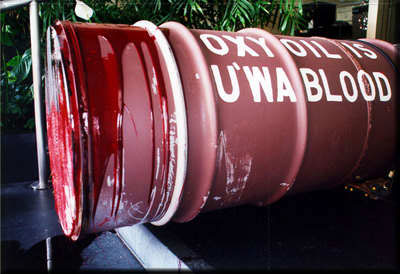China and Japan can’t stop fighting World War II
The 67th anniversary of Japan's World War II surrender saw a confrontation with Chinese activists over the contested Senkaku Islands in the oil-rich East China Sea.
The 67th anniversary of Japan's World War II surrender saw a confrontation with Chinese activists over the contested Senkaku Islands in the oil-rich East China Sea.
South Sudan and Sudan announced a deal on the south’s access to Khartoum’s oil pipelines—but it is contingent on further talks over disputed border enclaves.
Following peace talks hosted by Eritrea, the government of Ethiopia announced a peace deal with the Oromo Liberation Front rebels. The deal guarantees rebel leaders the right to participate in Ethiopia's political process in exchange for laying down arms. The OLF has long been backed by Eritrea, and the pact comes one month after a formal end was declared to the two-decade state of war between Ethiopia and Eritrea, with Ethiopia ceding its claim to the contested border town of Badme. This points to a softening of positions under Ethiopia's new prime minister, Abiy Ahmed. The Badme deal was also said to have been quietly brokered by the United Arab Emirates, which has emerged as politically isolated Eritrea's most significant foreign patron, part of an apparent design to encircle Yemen. (Photo: Yassin Juma)

In what the New York Times somewhat hyperbolically calls a "clash," US Border Patrol vessels have over the past two weeks stopped at least 10 Canadian fishing boats in the Bay of Fundy between Maine and New Brunswick. Canada has responded by beefing up its Coast Guard patrols in what is being termed a "disputed gray zone" between the two countries' territories. The maritime dispute dates back to the 1783 Treaty of Paris that ended the American Revolution, and is one of several between the US and Canada—including fishing waters at Dixon Entrance between Alaska and British Columbia, and areas of the petroleum-rich Beaufort Sea, near the Arctic Ocean. (Map: ResearchGate)